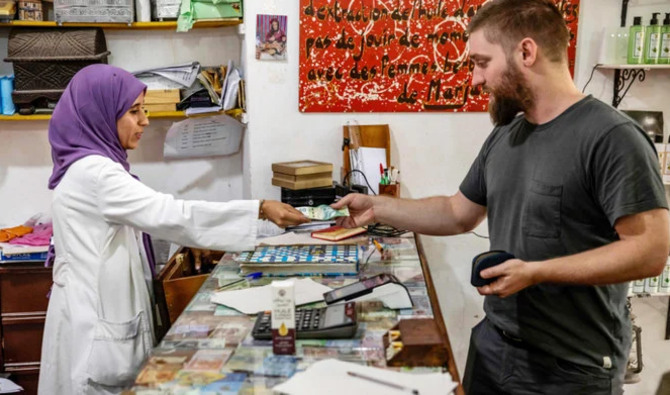(Transatlantic Today) – The manager admits to having “afraid that this craft work will disappear one day”
However, this activity constitutes, with tourism, the main source of income for the 78,000 inhabitants of Essaouira, famous for its expanses of argan trees, one of the rare plants capable of supporting the semi-arid climate of the region.
Essaouira: has even the ground, a group of women from the southwest Moroccan shift fruit to make the famous argan oil very popular around the world, an ancestral know-how which, shunned by the young generations, could disappear.
In the “Marjana” cooperative, about fifteen kilometers from the Port City of Essaouira, these crafts are working before tourists.
With slow gestures, these women, mostly sexagenous, crushed the harsh nuclei with pebbles they have chosen and sometimes a hammer, to extract the almonds before sorting, roasting, grinding then pressure.
“It is a hard work that requires experience and a lot of patience,” said Samira Chari, 42, the youngest of this cooperative that produces up to 1,000 liters of oil.
“This profession is currently shunned by the new generation,” deplores Amel El Hantatti, founder of the cooperative, created in 2005 and employing 80 women, in manufacturing and marketing.
The manager admits to having “afraid that this craft work will disappear one day”.
However, this activity constitutes, with tourism, the main source of income for the 78,000 inhabitants of Essaouira, famous for its expanses of argan trees, one of the few plants capable of supporting the semi-arid climate of the region.
Many cooperatives, installed over twenty kilometers, produce the precious oil there, labeled since 2010 “protected geographic indication” (IGP).
“Special And Unique”
This know-how was also listed as the intangible cultural heritage of humanity in 2014.
He does not attract young people.
News from Marjana generally choose the sale of argan oil, widely used in cooking in Morocco, and its cosmetic derivatives.
“I tried to work for a few days with craftsmen but I could not continue; it is a difficult and very tiring process,” says Assia Chaker, 25, sales advisor for three years.
After years of unemployment, this graduate in Islamic sciences has oriented “without enthusiasm” towards this sector.
She “prefers to be in contact with people and practice other languages, since our store welcomes tourists every day, rather than staying all day to crush argan nuts”.
And “anyway, one day there will only be machines to do this job,” she said.
Her boss, Amal El Hantatti, objects: “The oil manufactured by machines will never have the particular taste of that produced by these crafts. It contains their positive waves, their laughs, their stories shared during the work, a spirituality that make it special and unique “.
“Other Ambitions”
“I have known in my life only argan oil. For me, it is as essential as oxygen or water,” confirms Samira, by roasting almonds in a large stove in the earth.
This craftsman, who works 10 hours a day, has never been at school. Divorced for 10 years, she alone supports the needs of her children thanks to her job.
She masters the art of making argan oil from an early age, a bequeathed know-how from generation to generation.
But his children will not take over: “They have other ambitions,” said Samira, who understands their desire to carry out their studies.
However, this “liquid gold” with benefits-hydrating and anti-aging-proven by numerous studies, records growing demand.
According to official statistics, the kingdom produced more than 5,600 tonnes of argan oil in 2020, 2,350 of which were exported.
The turnover of the sector tripled between 2012 and 2019, to reach around 108 million euros, according to the Ministry of Agriculture.
Faced with the risks linked to climate change, the authorities have accompanied the sector over the past 10 years, in particular by building 13 rainwater collection tanks.
The Agadir-Essaouira zone which covers more than 830,000 hectares on which 686 cooperatives are installed, in 1998 obtained the status of “Biosphere Reserve” of UNESCO.
With the objective of transforming this traditional culture into a “modern, profitable and high added” sector, Morocco included the Argan to its agricultural strategy for 2030.
It plans to double production while promoting “the emergence of a new generation of the peasant middle class”.
This article is originally published on arabnews.fr.


























